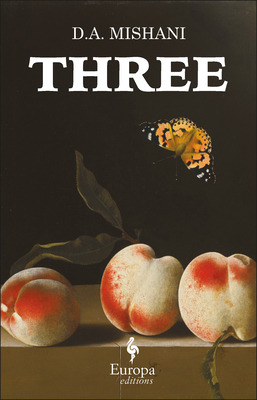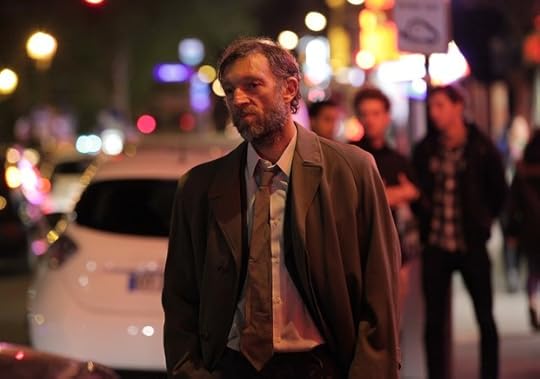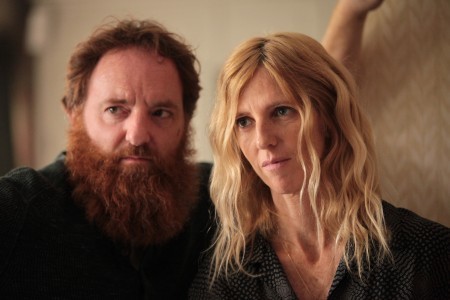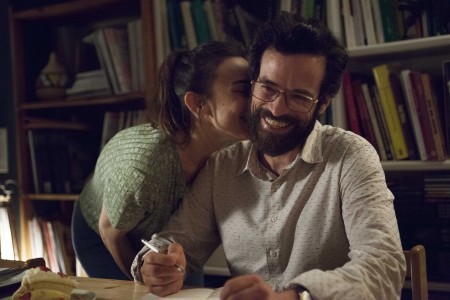Viel Hype um (etwas) Weniger!
Noch ehe ich „Drei“ zu lesen begann, war ich tatsächlich auch schon an drei verschiedenen Stellen verlagsseitig darum gebeten worden, bitte jedweden Spoiler zu vermeiden, wenn ich von diesem Roman erzähle – letztlich wird auch der Klappentext mit „Der Sensationsbestseller aus Israel, über den man eigentlich nichts verraten darf. Spoiler-Gefahr!“ eingeläutet, wobei mich das alles schon ein wenig verwunderte, denn der Diogenes-Verlag ist immerhin nicht grade dafür bekannt, die gaaaaaaanz große Werbemaschinerie anzuschmeißen und zu Übertreibungen zu neigen bzw. Sachen aufzubauschen.
Um es vorwegzunehmen: Ich fand „Drei“ soweit gut, ich habe diesen Roman sehr gerne gelesen, aber „sensationell“ würde ich ihn nun nicht nennen. Wenn dann noch wer zitiert wird, der sagt, dass es rund um „Drei“ einen Hype gibt, als ginge es um die nächste Staffel Game of Thrones: Dann weiß ich auch nicht. Vielleicht ist Mishani in Israel so etwas wie Fitzek in Deutschland: Ich weiß es nicht. Der GoT-Vergleich hinkt in meinen Augen jedenfalls gewaltig; und zwar so sehr, dass das Hinkebein eigentlich schon amputiert ist.
Was verrät der Klappentext vom Roman? Drei Frauen suchen Unterschiedliches und finden denselben Mann; keine Frau verrät ihm alles, er verrät auch keiner alles. Warum diese Geheimnisse tatsächlich essentiell sind, wird erst zum Ende des Romans im Gesamten hin deutlich – in „Drei“ werden die Geschichten der verschiedenen Frauen übrigens nacheinander erzählt; grob gerechnet macht jeder der drei Teile auch ca. 110 Seiten des Romans aus, das ist also sehr gleichmäßig. Gefühlt schien mir der erste Teil aber am Längsten zu sein: Hier trifft man auf Orna, deren Mann sie und den gemeinsamen Sohn zugunsten einer anderen Frau, mit der er nach Nepal gezogen ist, verlassen hat und die sich nun langsam ans Online-Dating heranwagen will, weil sie selbst auch endgültig diesem „Scheidungstief“ entkommen will, in dem sie bislang alleine für sich gekämpft hat, während ihr Sohn Eran längst psychologische Hilfe in Anspruch nimmt. Da fragte ich mich eigentlich noch die ganze Zeit, worauf diese Geschichte eigentlich nun hinauslaufen würde, was da nun so „ohjehmine, ach du meine Güte, Spoilergefahr, Spoilergefahr – Spoilergefahr!!!“ sein sollte und dann endete dieser Strang mit einem richtig fetten Knall. Was war denn das?! (Klar, die Spoilergefahr.)
Relativ fassungslos fuhr ich dann mit dem Lesen des zweiten Teils fort – da wusste ich ja schon, worin in Ornas Fall das Mysterium gelegen hatte und da wurde es dann spannend, weil man zum Einen damit rechnete, dass auch dieser Erzählstrang auf ein ähnliches Ende zulaufen würde und zum Anderen aber noch mit einem alternativen Schluss rechnete: Mishani würde es doch nicht nochmals derart knallen lassen? Nein, ich spoilere nicht und mit dem dritten Teil wurde also das große Finale eingeläutet: Frau Nummer Drei betrat die Bühne – und „Drei“ endete schließlich damit, dass ich irgendwann „Oh!“ dachte, weil es schon ein klitzekleines bisschen mindf****mäßig war.
Ich schrieb bereits, dass ich „Drei“ sehr gerne gelesen habe, aber: Den Hype, den es um diesen Titel geben soll, kann ich nach wie vor nicht recht nachvollziehen, und gehe tatsächlich davon aus, dass der im (mutmaßlichen) Ruhm des Autors und weniger in dieser Erzählung begründet ist. Der erste Teil schien mir eben länger als die Anderen zu sein, und auch etwas zäher, wobei die Geschichte der zweiten Frau auch vor Allem deshalb spannender war, weil man die Geschichte der ersten Frau, die „denselben Mann gefunden“ hatte, ja bereits kannte, und ihre Person zudem auch hier noch ab und an durchschien.
„Drei“ ist ein eher ruhig wirkender Roman, der quasi plötzlich explodiert; die Dramatik bleibt dabei bis dahin immer sehr unterschwellig und das ganze Erscheinungsbild des Romans sehr literarisch. Der Diogenes-Verlag hat hier seine altbewährten Pfade auch nicht verlassen; das ist so ein Roman, wie man ihn dort auch im Verlagsprogramm erwarten würde; mir war Dror Mishani als Autor bislang völlig unbekannt, aber meiner Meinung nach ist „Drei“ definitiv ein Buchtipp für alle Leser, die beispielsweise die Werke von Ian McEwan schätzen. An dessen Stil hat mich die Gangart von „Drei“ nämlich durchaus erinnert.
[Ein Rezensionsexemplar war mir, via Vorablesen, unentgeltlich zur Verfügung gestellt worden.]







